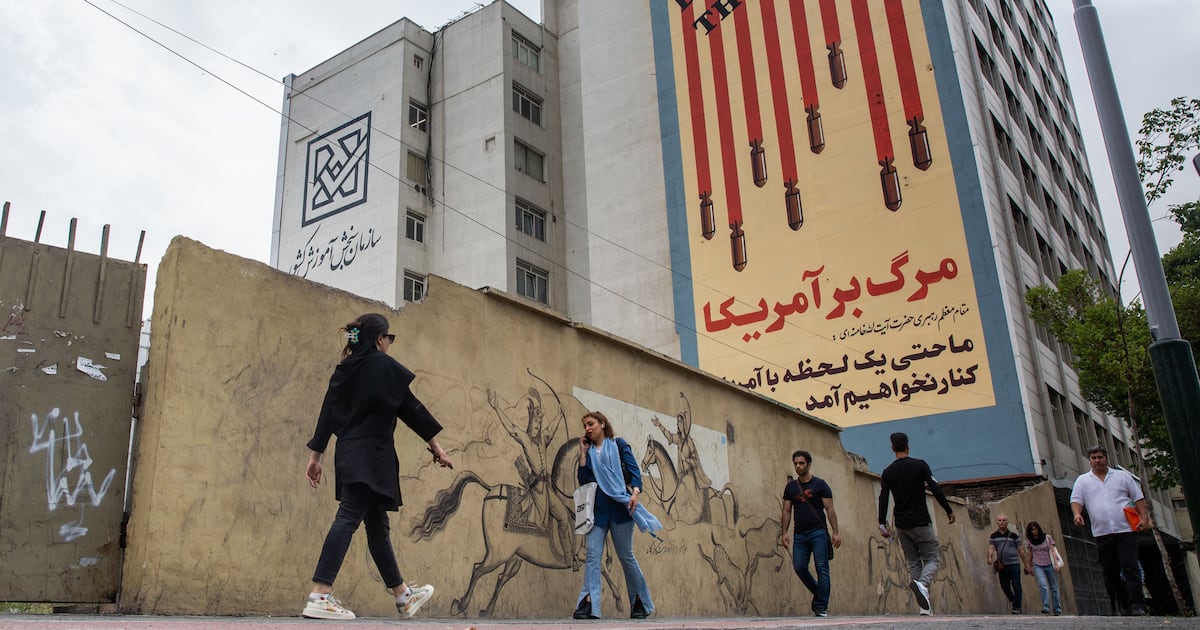World
Tensions Escalate as Iran Detains Four Iranian Americans

Tensions between Iran and the United States are escalating following the confirmed detention of at least four Iranian Americans. Human rights groups and legal representatives have reported that these individuals, two men and two women, are currently in Iranian custody. This incident is indicative of Iran’s long-standing practice of using what critics label “hostage diplomacy” to gain leverage in international negotiations.
According to Hostage Aid Worldwide, a non-profit organization that assists families of hostages, the detentions come in the wake of a recent military conflict involving Israel and the United States. Reports indicate that three of the detainees are incarcerated, while one has been prohibited from leaving the country. The Iranian government’s actions have raised concerns about the political climate between Tehran and Washington, particularly after the U.S. military’s involvement in strikes against Iranian nuclear sites in June.
Iran’s Foreign Minister, Abbas Araghchi, noted that he has been in direct communication with U.S. Special Envoy Steve Witkoff via text messages. The Biden administration has made it clear that securing the release of detained Americans is a priority. President Donald Trump emphasized that the wrongful detention of U.S. citizens will not be tolerated.
The U.S. State Department is monitoring the situation closely. A spokesperson stated, “We call on Iran to immediately release all unjustly detained individuals.” The Iranian mission to the United Nations has not commented on the detentions, and Iranian authorities have launched a crackdown, claiming to have arrested numerous individuals accused of espionage on behalf of Israel.
The detained Iranian Americans had all resided in the U.S. and traveled to Iran to visit family. Human Rights Activists News Agency (HRANA) reports that two of the detainees were arrested shortly after Israel’s military actions in June. Among them is a 70-year-old Jewish man from New York, who is reportedly under scrutiny for a trip to Israel, and a woman from California, whose location remains uncertain after the bombing of Evin prison.
Another detainee, an Iranian American woman who was initially imprisoned in December 2024, is currently out of jail but has had her Iranian and American passports confiscated. Her case has been escalated by the judiciary, with charges of espionage now pending against her. Such serious accusations can result in lengthy prison terms or even the death penalty.
Additionally, journalist Reza Valizadeh, previously associated with Radio Farda, is serving a ten-year sentence after being arrested in October 2024 for allegedly collaborating with a hostile government. This pattern of detentions has raised alarms among the Iranian American community, particularly those who have previously navigated similar situations.
Siamak Namazi, an Iranian American who spent eight years in Iranian custody, mentioned that the number of detentions has surged since the recent conflict. He stressed the importance of prioritizing the release of these individuals in any future diplomatic dialogues with Iran. “Securing their release must be a core U.S. priority,” Namazi stated.
The Iranian government has also encouraged members of the diaspora to return to the country, with President Masoud Pezeshkian indicating a desire to create a safe environment for returnees. Yet, analysts caution that Iran’s history of detaining foreign nationals as leverage during political disputes complicates this narrative.
Following the recent military actions, the U.S. State Department has issued a travel warning advising Americans against visiting Iran “under any circumstances.” The warning cites an increased risk of detention for both American citizens and Iranian Americans, underscoring the precarious situation of those dealing with family ties in Iran.
As the crisis unfolds, the Iranian American community remains on high alert, with many fearing for the safety of their loved ones. The complex interplay of politics, diplomacy, and personal safety continues to shape the narrative surrounding U.S.-Iran relations.
-

 Top Stories3 months ago
Top Stories3 months agoTributes Surge for 9-Year-Old Leon Briody After Cancer Battle
-

 Entertainment4 months ago
Entertainment4 months agoAimee Osbourne Joins Family for Emotional Tribute to Ozzy
-

 Politics4 months ago
Politics4 months agoDanny Healy-Rae Considers Complaint After Altercation with Garda
-

 Top Stories4 months ago
Top Stories4 months agoIreland Enjoys Summer Heat as Hurricane Erin Approaches Atlantic
-

 World5 months ago
World5 months agoHawaii Commemorates 80 Years Since Hiroshima Bombing with Ceremony
-

 Top Stories3 months ago
Top Stories3 months agoNewcastle West Woman Patricia Foley Found Safe After Urgent Search
-

 Top Stories5 months ago
Top Stories5 months agoFianna Fáil TDs Urgently Consider Maire Geoghegan-Quinn for Presidency
-

 World5 months ago
World5 months agoCouple Convicted of Murdering Two-Year-Old Grandson in Wales
-

 World5 months ago
World5 months agoGaza Aid Distribution Tragedy: 20 Killed Amid Ongoing Violence
-

 World5 months ago
World5 months agoAristocrat Constance Marten and Partner Convicted of Infant Murder
-

 Top Stories4 months ago
Top Stories4 months agoClimbing Errigal: A Must-Do Summer Adventure in Donegal
-

 Top Stories4 months ago
Top Stories4 months agoHike Donegal’s Errigal Mountain NOW for Unforgettable Summer Views









